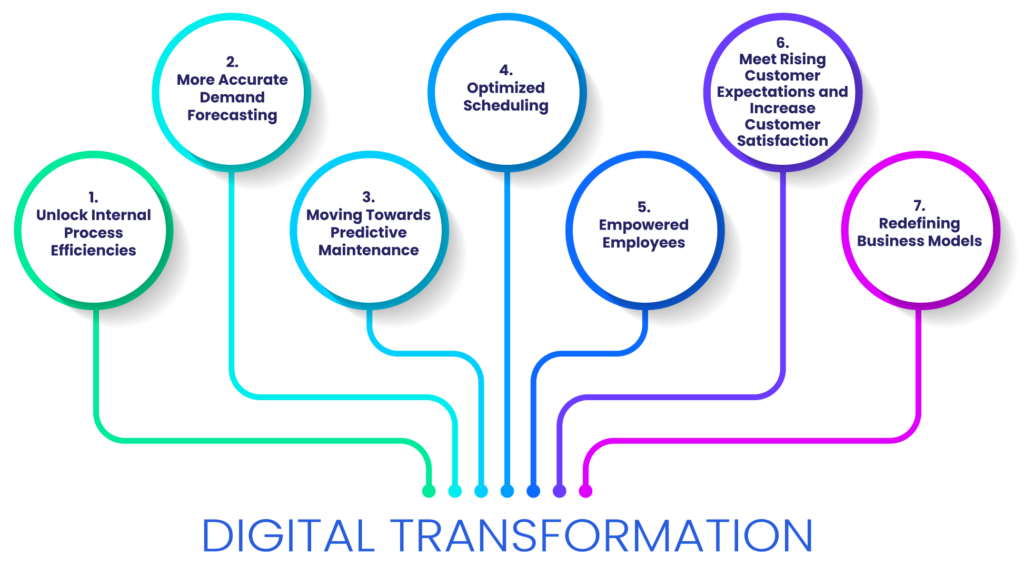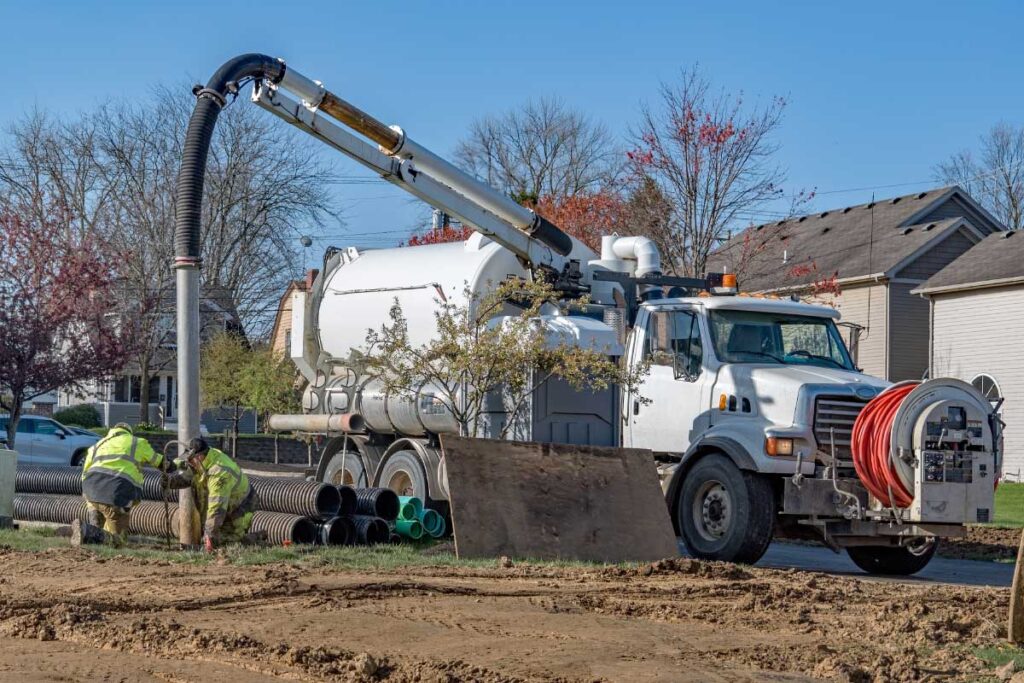The world of field service is changing rapidly. As consumers are being influenced by faster, more efficient digital platforms, so are customer expectations surrounding service, response times and convenience.
Many field service organizations are turning to digital transformation to help achieve lean and efficient operations and while simultaneously remaining competitive. CIO defines this digital transformation as “the application of digital capabilities to processes, products, and assets to improve efficiency, enhance customer value, manage risk and uncovers new monetization opportunities”.
Leveraging rapidly changing digital technology such as big data, IoT and machine learning is allowing companies to capture more data than ever before, providing new insights and understanding into customers as well as unlocking operational efficiencies.
Here are 7 key benefits of digital transformation for field service organizations:
- Unlock Internal Process Efficiencies
Real-time operational intelligence gives managers insight into all aspects of their service operations while end-to-end Field Service Management (FSM) automates the entire service supply chain. This eliminates paper processes and reduces the time from initiation to invoice, transforming service delivery from reactive to proactive. These technologies allow organizations to reduce operating costs and focus more on the overall customer experience.
- More Accurate Demand Forecasting
Predicted demand, provided by IoT and big data technology, allows organizations to collect real-time data and leverage advanced forecasting algorithms to predict the optimal window for service visits, rather than simply relying on historical information.
- Moving Towards Predictive Maintenance
When remotely connected, IoT assets stream real-time data which enables organizations to model and predict potential issues. Preventative and condition-based servicing and maintenance replaces reactive service, greatly reducing costly interval-based service visits, miles traveled, wasted repeat visits and the risk of downtime due to failure.
- Optimized Scheduling
Optimization takes planning, scheduling and routing processes to the next level, ensuring that the right technician is dispatched with the right equipment and parts to the right place at the right time. This increases productivity and boosts customer satisfaction (ensuring SLAs are met) while reducing costly repeat visits.
- Empowered Employees
With mobile capabilities, field technicians can check their schedule, dispatch notes, make updates to orders, view inventory, get complete visibility into a customer’s order history and more. Technicians are also better equipped to identify up-sell and cross-sell opportunities that can positively contribute to the bottom line.
- Meet Rising Customer Expectations and Increase Customer Satisfaction
The latest FSM solutions allow enterprises to truly connect and engage with their customers like never before.Field Service organizations can enhance customer engagement and loyalty by employing self-service portals. Additionally, they can provide personalized real-time field service information, such as technician details, ETA, likely visit duration, and the option to collect post-visit customer satisfaction feedback through surveys.
- Redefining Business Models
Digital transformation is causing tremendous changes in how companies are doing business, with many organizations moving from selling products (what used to be an expensive operation, fixing failures in the field) to selling much more profitable services. This approach, known as servitization, reduces operational costs, creates new recurring revenue streams and allows competitive differentiation.
To find out more, contact us to discover how we can help.







